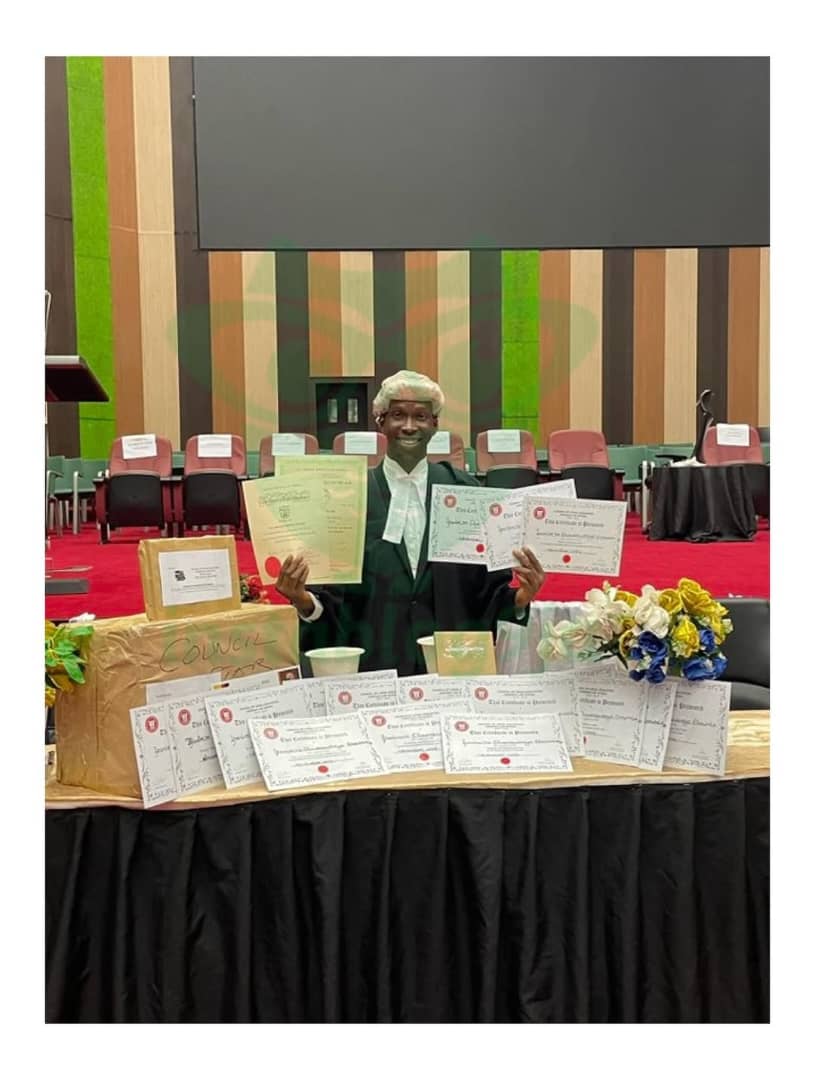
Chinese Fugitive Chen Gaochong Nabbed in Lagos, Deported Over ₦1 Billion Tax Fraud

In a swift and calculated operation that stunned many, the Nigeria Police Force, in collaboration with immigration authorities, have arrested and deported a Chinese national, Chen Gaochong, who had been declared wanted over allegations of large-scale tax fraud in China. The dramatic arrest, which took place on June 24, 2025, in Lagos, followed weeks of surveillance and intelligence coordination between Nigerian and Chinese law enforcement agencies. Gaochong is accused of orchestrating a financial scheme involving tax evasion and corporate fraud estimated at over five million Chinese Yuan, which is approximately ₦1.1 billion in Nigerian currency.
The suspect, a middle-aged businessman who had reportedly entered Nigeria under the guise of trade and investment, was quietly tracked down in a highbrow area of Lagos where he had been living under a false identity. Sources close to the operation revealed that Gaochong had been on the run for more than a year, having fled China shortly before a warrant for his arrest was issued by Chinese tax authorities. His capture in Nigeria marks a major milestone in transnational crime enforcement, particularly in the wake of growing concerns about foreign fugitives exploiting porous borders in West Africa.
According to a statement released by the Nigeria Police Force, Chen Gaochong’s arrest was the culmination of an extensive manhunt supported by intelligence reports from Interpol and a request for cooperation issued by the Chinese government through diplomatic channels. The Police confirmed that Gaochong was found in possession of multiple forged travel documents and had attempted to bribe arresting officers at the point of capture. His attempts to resist deportation were swiftly thwarted, and by June 27, he had been flown out of the country under tight security and handed over to Chinese authorities at the Beijing Capital International Airport.
The Inspector General of Police, Kayode Egbetokun, praised the successful apprehension as a testament to Nigeria's commitment to upholding international law and ensuring that its territory does not serve as a haven for criminals, regardless of nationality. “Nigeria will not be a safe ground for fugitives. Our borders are open to investors, not criminals. Anyone who thinks they can escape justice by hiding here is clearly mistaken,” he stated during a press briefing in Abuja. He further emphasized that the arrest sends a strong message about Nigeria’s zero-tolerance stance toward economic crimes and illegal residency practices.
The case has since sparked a flurry of reactions both locally and internationally. In China, authorities have confirmed Gaochong’s return and stated that he will face charges related to fraudulent tax claims, money laundering, and operating shell companies to evade corporate taxes. If convicted, he could face up to 20 years in prison under Chinese financial crime statutes. Chinese media outlets have highlighted Gaochong’s arrest as a “victory for global justice,” noting that this is not the first time a high-profile fugitive has been captured abroad thanks to international cooperation.
Within Nigeria, the development has raised eyebrows over how Gaochong managed to enter the country, obtain forged documents, and live undetected for so long. Reports suggest that he may have received assistance from local collaborators, including a network that specializes in fake identity papers and business front operations. Investigations into these alleged accomplices are already underway, and authorities have hinted that several Nigerians may soon be arrested for aiding and abetting the fugitive.
Security analysts say the case also underscores the pressing need for tighter immigration controls and more rigorous vetting of foreign nationals entering Nigeria. “This is a wake-up call. Criminals are becoming increasingly sophisticated, and if our systems are not airtight, Nigeria risks becoming a dumping ground for global fugitives,” said Dr. Uche Okoye, a legal and security expert based in Abuja. He also noted the importance of leveraging technology and international partnerships to improve crime detection and border security.
Gaochong’s arrest also brings renewed attention to Nigeria’s role in combating global financial crime. The country has in recent years intensified its participation in international crime-fighting efforts, with the Economic and Financial Crimes Commission (EFCC) and other agencies actively collaborating with global bodies such as Interpol, the Financial Action Task Force (FATF), and the United Nations Office on Drugs and Crime (UNODC). However, many believe that more needs to be done to close loopholes and prevent foreign criminals from infiltrating local economies.
Residents of the Lagos neighborhood where Gaochong had been hiding expressed shock upon learning of the arrest. A shop owner who spoke on condition of anonymity described him as “quiet and low-profile,” adding that he “didn’t really talk to people but seemed very comfortable with his surroundings.” The building where he lived has since been sealed off by law enforcement for further investigation, with authorities combing through digital and physical evidence that may link Gaochong to broader criminal networks.
Meanwhile, the Chinese Embassy in Abuja has released a statement thanking the Nigerian government for its cooperation and professionalism in handling the matter. “We commend the Nigerian authorities for their swift action and continued partnership in law enforcement,” the embassy said, adding that the arrest further strengthens the diplomatic ties between both nations.
Back in Nigeria, many are hopeful that this operation sets a precedent for dealing decisively with foreign nationals involved in illegal activities. The incident has also reignited public debates about the accountability of foreign businesses and expatriates operating within the country. Citizens have taken to social media to express concerns over the growing presence of undocumented foreigners, calling for stricter monitoring and periodic audits of foreign-owned establishments.
For now, the Nigerian government seems poised to take firmer steps to ensure that its reputation is not tainted by the actions of international fugitives. As investigations into Gaochong’s local connections continue, Nigerians await the outcomes of what could be a broader crackdown on criminal rings exploiting the country’s legal and bureaucratic weaknesses.
Chen Gaochong’s story might have ended in arrest and deportation, but it opens a deeper conversation on global crime, local complicity, and the need for constant vigilance in an increasingly interconnected world.


